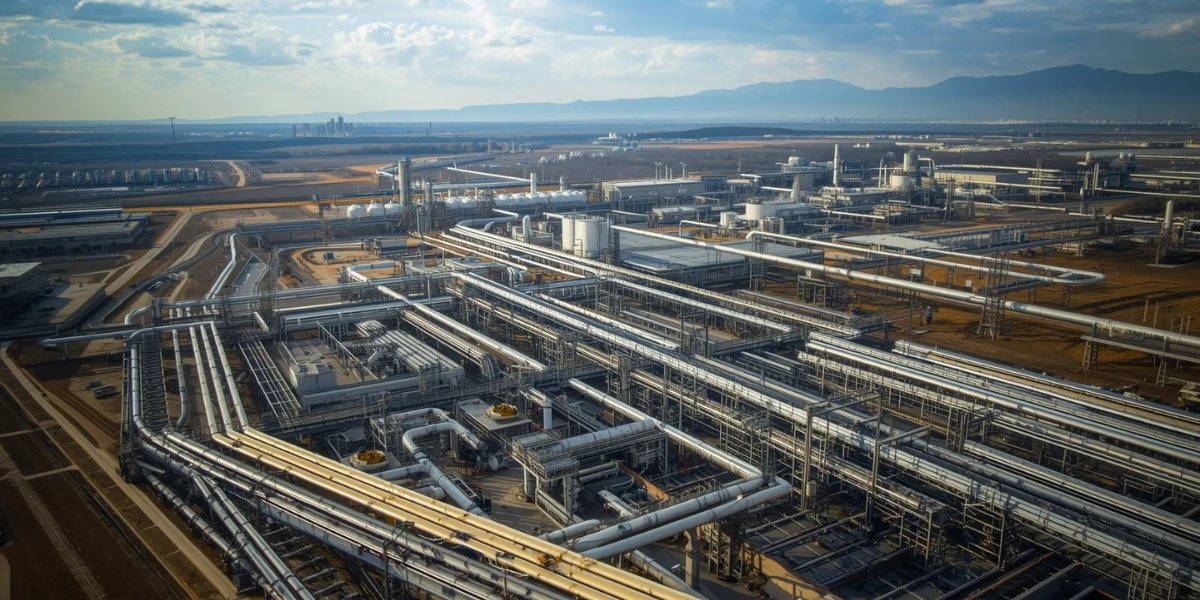Discover why vinyl ester resin outperforms polyester resin in harsh environments. Go through the comparison of Vinyl Ester vs. Polyester and learn how its superior chemical resistance and strength make it ideal for industrial and marine applications.
Vinyl Ester vs. Polyester Resin: Who Wins?
In industries exposed to extreme conditions, material selection can determine long-term performance. Between vinyl ester resin and polyester resin, both are widely used in composites. Yet, when durability and chemical resistance matter most, vinyl ester outperforms polyester. This blog explores the reasons behind that difference and how vinyl ester thrives in harsh environments.
Understanding the Basics of Vinyl Ester Resin
Vinyl ester resin is a hybrid material, bridging the gap between epoxy and polyester resins. This unique chemistry gives vinyl ester its high strength, flexibility, and chemical resistance.
Unlike polyester, vinyl ester forms stronger molecular bonds. These bonds allow the resin to handle stress and resist cracking under pressure. As a result, it performs better in demanding conditions such as chemical storage, marine construction, and corrosion-prone areas.
Polyester Resin: A Cost-Effective But Limited Option
Polyester resin is often chosen for its low cost and easy processing. It is widely used in general-purpose FRP (Fiber Reinforced Plastic) products like tanks, panels, and boats. However, polyester has limitations in environments where heat, moisture, or chemicals are constant threats.
It tends to absorb water over time, leading to swelling and loss of mechanical strength. Additionally, polyester resins show poor resistance to acids and alkalis. When exposed to aggressive substances, they degrade faster, resulting in reduced lifespan and performance.
Vinyl Ester vs Polyester: Discover the Differences
Vinyl Ester vs. Polyester: Superiority in Chemical Resistance
One of the biggest reasons vinyl ester resin outperforms polyester lies in its chemical resistance. The epoxy backbone within vinyl ester provides a barrier against a wide range of acids, alkalis, and solvents.
This property makes it ideal for applications like:
- Chemical storage tanks
- Pipeline linings
- Wastewater treatment plants
- Marine vessels
Even under continuous exposure, vinyl ester maintains its integrity. Polyester, on the other hand, tends to blister, crack, and lose adhesion over time. In a chemical processing facility, tanks made with vinyl ester liners last years longer than polyester alternatives. This directly translates into fewer repairs and lower maintenance costs.
Vinyl Ester vs. Polyester Resin Mechanical Strength Comparison
Vinyl ester’s molecular structure gives it superior tensile strength and elongation. This means it can handle more stress before breaking. When structures expand or contract due to temperature changes, vinyl ester absorbs the stress instead of cracking.
In contrast, polyester resins are more brittle. They often fail under repeated mechanical stress or vibration. For structures that experience constant motion or load, like marine hulls or industrial piping, vinyl ester is the smarter choice. Vinyl ester provides a stronger, more flexible composite that withstands harsh conditions longer.
Comparison of Resistance to Moisture and Permeation: Vinyl Ester vs. Polyester
Moisture is the silent enemy of many composite materials. Polyester resins tend to absorb water molecules, which leads to osmotic blistering. Over time, this weakens the laminate and shortens service life.
Vinyl ester, however, has a lower water absorption rate. Its tight molecular structure prevents moisture penetration. That’s why it’s widely used in marine and offshore industries, where prolonged contact with saltwater is unavoidable. Boat hulls made with vinyl ester resins resist blistering far longer than those made from polyester. This translates to better surface finish and reduced maintenance.
Comparison of Thermal and Fatigue Resistance
Industrial environments often face fluctuating temperatures. Vinyl ester resins perform consistently across a wide thermal range. They resist softening and maintain strength even under elevated heat.
Moreover, vinyl ester’s flexibility provides excellent fatigue resistance. Components made with it can endure repeated stress cycles without losing mechanical performance. Polyester resins, in comparison, tend to crack or delaminate after prolonged stress exposure.
This makes vinyl ester the top choice for demanding sectors such as:
- Chemical process equipment
- Power generation
- Automotive parts exposed to heat
- Industrial exhaust systems
Regarding Long-Term Durability and Low Maintenance
Durability is where vinyl ester truly shines. Structures made with this resin type can last decades with minimal upkeep. Its resistance to corrosion, cracking, and water absorption reduces the need for frequent repair or replacement.
While polyester systems may seem cost-effective at first, they often require more maintenance. Over time, the cost of repairs and downtime can outweigh the initial savings. Vinyl ester offers better lifecycle value, especially when performance reliability is critical.
Industrial Applications Where Vinyl Ester Excels
Because of its outstanding properties, vinyl ester resin is used in several high-performance areas:
- Chemical Storage Tanks: Resists acids, alkalis, and solvents.
- Marine & Offshore Structures: Protects against saltwater corrosion and impact.
- Pipes & Ducts: Handles high pressure and temperature fluctuations.
- FRP Gratings & Linings: Provides long-term chemical resistance.
- Renewable Energy Equipment: Ideal for wind turbine blades and other composites.
These applications show how vinyl ester supports industries operating in harsh and corrosive environments.
Vinyl Ester vs. Polyester: A Quick Comparison
Even though vinyl ester costs more initially, its performance-to-cost ratio is far superior when measured over the product’s lifecycle.
Concluding Thoughts
In environments where heat, moisture, and chemicals are constant challenges, vinyl ester resin outperforms polyester in every key aspect like strength, resistance, and durability. It offers longer life, lower maintenance, and consistent reliability. For industries that demand long-term performance in harsh conditions, choosing vinyl ester is not an option, it is an investment in quality and safety.
COMPANY INFO
Website: www.crestresins.com
Phone: +91 9879233188
Email: enquiry@crestresins.com
Address: 605/A, 6th Floor, Tower D, Times Square Grand Office, Sindhubhavan Marg, Near Taj Hotel, Ahmedabad, Gujarat - 380059


